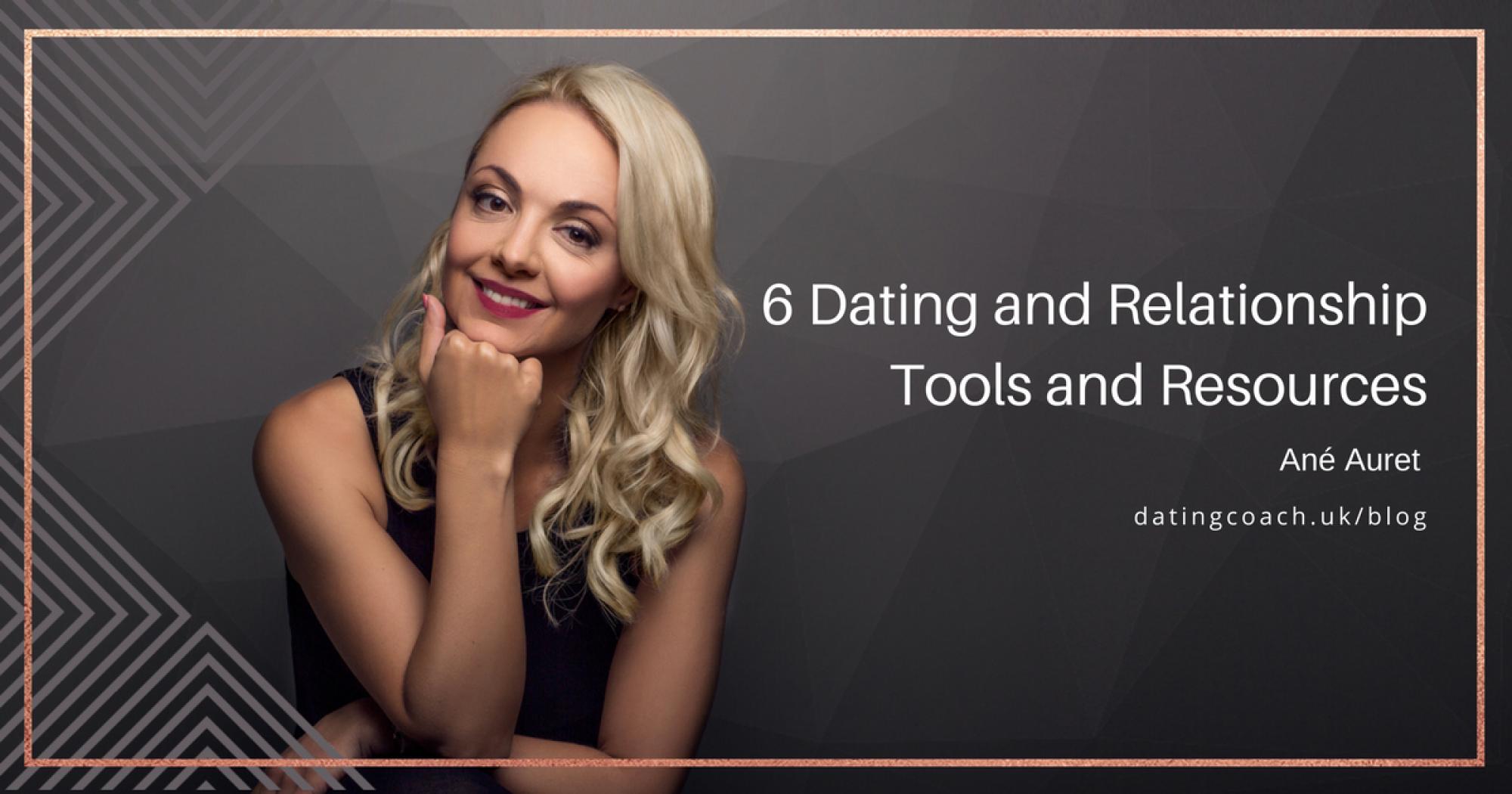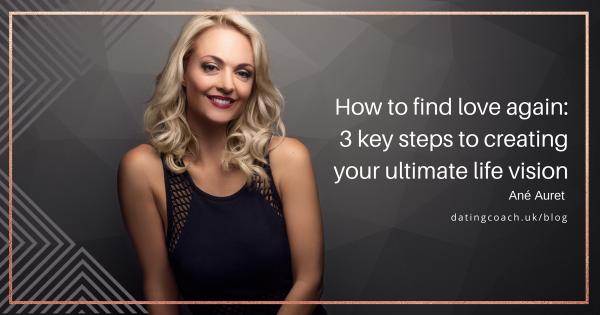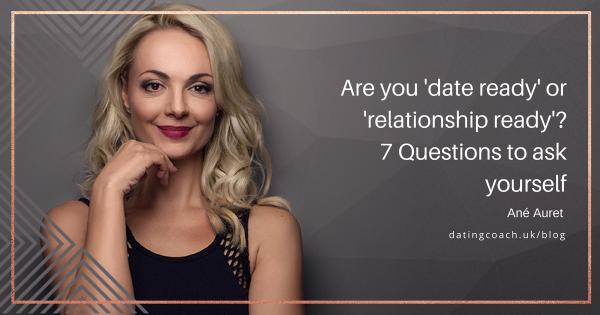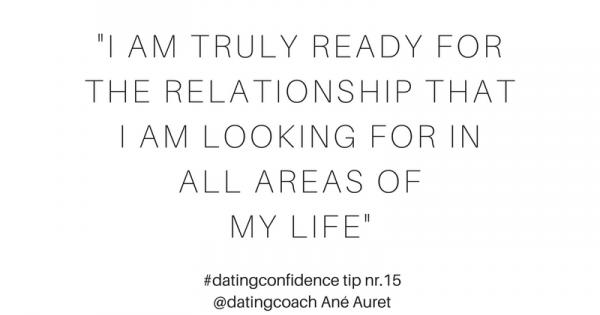
6 Dating and Relationship Tools and Resources
Knowing and understanding who you are in love, how you function in relationships and why you choose the people you do is crucial in attracting the right person for you and creating the long-term relationship you're looking for.
We can't change what we don't know,we can't let go of what we're not aware of,we repeat what we don't heal.
Your relationships are a reflection of the relationship you have with yourself. How you project and perceive yourself and your place in the world - and how you choose to engage with the world around you on a daily basis. At the root of your relationship with yourself is the awareness and understanding of who you are, what you're about, who and how you love, and why. In a love, dating and relationship context we're talking about relational self-awareness.
In one of my absolute favourite (and recommended) Relationship Books, Loving Bravely, Dr Andrea Solomon describes relational self-awareness as the most important quality to look for in a romantic partner. It's an essential indicator of the long-term viability of any relationship - and is of course needed on both sides to build the foundation for a healthy and happy relationship.Knowing and understanding yourself is one of life's most exciting, but also often one of the most unsettling and painful journeys we experience. There is the 'you' you get to know as an individual - but there is also the 'you' in the context of relationships, in the close proximity of another person who may be triggering and stirring all sorts of feelings and responses inside you.Sadly it often takes a serious or traumatic life event like illness, divorce or grief to take us to the place where we start questioning who we really are and what we're all about.Understanding ourselves is one thing, one side of the coin so to speak. How we feel about the person we see in the mirror is the other. How we love, value and take care of ourselves are also reflected in the people we choose to have relationships with and the behaviour we're willing to accept in our lives.Taking the time to get to know yourself, explore the light and the shadow sides of who you really are is not just a gift to yourself, but also to your future partner, relationship and children if that's part of your path.Doing this work and the healing that comes with it is never linear and will ask a lot of you from time to time. But it's always worth it.As part of my coaching practice, I work with my clients on taking this journey back to themselves. Stripping it all back in the way that will help them move forward with new awareness, new understanding and a new focus.But before we get to Self Awareness, understanding and knowledge we're looking for there is the actual step of Self Reflection - asking yourself the questions that matter. There are countless ways of doing this, and many resources to help you do so. This is in no way an exhaustive list, but it is a starting point to see what resonates with you and see what you find most helpful. These are all part of the toolkit I use with my clients on a daily basis.
6 Recommended Dating and Relationship Tools and Resources to get to know yourself in love
1. Gary Chapman's Five Love Languages
The 5 Love Languages® official assessment is free to use and discovering your Love Language Profile will explain your primary love language, what it means, and how you can use it to connect with others. It is very useful to complete whether you're single or in an existing relationship.This is a tool I wish I discovered way back in my twenties instead of years later. In essence, the idea is that we are all different in the way that we understand, perceive, express and receive love. My idea of feeling loved, or what I do to express my love to you will most likely not be the same for you at all.We tend to express love the way we feel most loved, but this can mean a mismatch and misunderstanding with your partner right from the start.For example, my primary love language (what I need most) is Quality Time - while Neil's primary love language (what he needs most from me) is Acts of Service.
Chapman explains the concept like this:
"My conclusion after thirty years of marriage counselling is that there are basically five emotional love languages - five ways that people speak and understand emotional love. In the field of linguistics, a language may have numerous dialects or variations. Similarly, within the five basic emotional love languages, there are many dialects...The important thing is to speak the love language of your spouse."
The five languages are pretty straightforward - here's a brief description of what each of them means:
- Words of Affirmation: Expressing affection through spoken affection, praise, or appreciation.
- Acts of Service: Actions, rather than words, are used to show and receive love.
- Receiving Gifts: Gifting is symbolic of love and affection.
- Quality Time: Expressing affection with undivided, undistracted attention.
- Physical Touch: It can be sex or holding hands. With this love language, the speaker feels affection through physical touch.
The most important takeaway is to know your love language(s) so you can speak your partner's language fluently and also to be able to ask better for what it is that you need and want.
2. Helen Fisher's Personality Quiz: Discover your Personality Signature and learn more about who you are, whom you seek and how you love
I love Helen Fisher's work because she is the world leader in researching and answering the questions that I'm personally obsessed with: Why do we love who we love, and why do love how we love?She has a lot of helpful articles, books and TED talks that you can easily find online, but for this article, I'm sharing her 'Personality Quiz' that has now been taken by over 14 million people in 40 countries.In this instance, we're taking more an of physiology / biological approach to self-awareness and test the degree to which you express four broad styles of thinking and behaving, each associated with one of four basic brain systems: the dopamine, serotonin, testosterone and estrogen systems.
We call these four types the:
- Explorer: those who primarily express the traits linked with the dopamine system.
- Builder: those who primarily express the traits linked with the serotonin system.
- Director: those who primarily express the traits linked with the testosterone system.
- Negotiator: those who primarily express the traits linked with the estrogen system.
The Personality Quiz is designed for you to discover your "personality signature" And to find out how your style of thinking and behaving influence who you find romantically attractive, what you seek in a mate, and how you will get along with a long-term partner.
3. Attached - The Book by DR. Amir Levine and Rachel S. F. Heller, M.A: The New Science of Adult Attachment and How It Can Help You Find-And Keep-Love
Prior to entering the Dating & Relationship Coaching arena and becoming a coach for women I worked in the Child Protection field for nearly 15 years with women and children.As a trained Social worker, there was a lot of emphasis on childhood attachment and how that impacted outcomes for children later in their lives. I, therefore, have a very strong interest in Adult Attachment and how that carries through from childhood into our adult relationships.There're a lot of resources around attachment styles and patterns online, and in my view understanding, this part of yourself is one of the most important things you can ever do for yourself, and every other relationship, but especially your romantic relationship.
Pioneered by psychiatrist and psychoanalyst John Bowlby, the field of attachment posits that each of us behaves in relationships in one of three distinct ways:
- ANXIOUS people are often preoccupied with their relationships and tend to worry about their partner's ability to love them back
- AVOIDANT people equate intimacy with a loss of independence and constantly try to minimize closeness.
- SECURE people feel comfortable with intimacy and are usually warm and loving
In the book Attached, psychiatrist and neuroscientist Dr Amir Levine and Rachel Heller reveal how an understanding of adult attachment - the most advanced relationship science in existence today - can help us find and sustain love.Also central to the science of attachment is the discovery that our need to be in a close relationship is embedded in our genes. So, contrary to what many relationship experts today may tell us about the importance of remaining emotionally "self-sufficient", attachment research shows us that our need to be close to our partner is essential. That, in fact, we can't live without it.In this book Levine and Heller guide readers in determining what attachment style they and their mate - or potential mate - follow, offering a roadmap, starting from the first date, for building stronger, more fulfilling connections with the people they love.Here is a quick quiz that you can use to get you started to explore your own adult attachment style.
4. Looking for Love? 7 Questions to ask yourself first. Discover your unique Love Blocks with Dating Coach Ané Auret
Unless you get to the root of what is blocking love in your life, you won't change your experience of love. Discovering what may be causing you to settle, compromise or sabotage yourself and your relationships is one of the most important things you can ever do for yourself and any future relationship. I call these obstacles our 'Love Blocks' - and we all have them to some extent.The 7 Questions Journalling Workbook is designed to help you uncover, understand and resolves your unique Love Blocks - the destructive beliefs, fears, doubts, insecurity and unresolved pain that may be there under the surface and holding you back in ways that you may not be fully aware of.It's so easy to focus on our attention on what it is that we want that we sometimes forget about actually creating space for it by getting rid of what stands in our way in the first place.This short workbook with 7 key questions and guided prompts help shine a light on those areas you need to pay attention to and let go of to move on from feeling stuck and instead attract love from a place of clarity, confidence and strength.
5. The Ultimate Relationship Readiness Quiz: Are you ready for your next relationship? Find out here.
Are you actually ready for the relationship you say you want? In all areas of your life? Just because you're single, or just because you want a relationship doesn't necessarily mean you're ready to actually be in that relationship.If you're serious about making your next relationship work – take your time to make sure you are true relationship ready.Be kind and patient with yourself. And with the process, you're going through. Getting through a painful breakup or divorce is a traumatic experience that brings a huge amount of pain and grief into your life – and it's not to be skipped over lightly.Many people deal with their pain (and fear of being alone) through getting involved with somebody else - often too soon. I hear from my clients how they've repeated these cycles of getting into new relationships without ever resolving why they didn't work out in the first place. That's often where we start our work. Unravelling it all and set them on a new path to finally have the lasting and fulfilling relationship and deep connection they want.If you're in a place right now where you're thinking about whether you're ready for your next relationship – check out this Relationship Readiness Quiz and find out whether there any areas in your life that may potentially sabotage your love life in future.
6. Getting Past Your Past - The Definitive Workbook to Emotional Healing, Health and Happiness - by Susan J. Elliot
It is often said that the best indicator of your future is to look at the past. But when it comes to repeating failed relationships and destructive habits and patterns that keep us stuck I wholeheartedly disagree.You can absolutely change your relationship future, no matter what you've tried in the past and it didn't work for you. You are meant to have a relationship that is fulfilling, healthy and happy on every level. Getting there may take some work, and will need you to take responsibility for your part in your story, but you absolutely have the power to re-write that story.Sometimes it needs you take a step back and take a very close look at your past, and how it brought you to where you are now. This resource helps you to do that in an in-depth way.Many women in my community and some of my clients come out of long-term relationships or marriages that have broken down and are at various stages of their grief and healing stages. I find Susan Elliot's books, blog and other resources full of real life, straightforward and practical advice and strategies and recommend you check but her website to see what resonates best with you.The Getting Past Your Past Workbook Please note: This is not a free resource - this Workbook costs $19.99. I'm not affiliated with this product, but I do wholeheartedly recommend it if you want to make a serious investment in terms of time and energy in your own healing.You can either work through this on your own, with a friend or with someone like a coach or counsellor/therapist. It's a very in-depth process with a huge amount of practical exercises for reflection, journaling and preparing and planning your next steps.
I hope you find these dating and relationship tools and resources useful.
I'd love to hear your thoughts and especially your recommendations on what you've found helpful when using other tools and resources.
Subscribe to my Youtube Channel - new episode every Friday
Are you subscribed to my Youtube Channel? If not, make sure to sign up so you don’t miss anything - I'd love to connect with you there!
Click here to subscribe : https://www.youtube.com/aneauret


